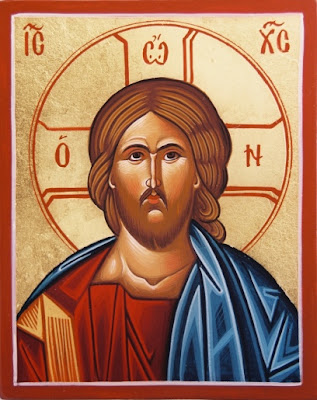Studying Dominus Iesus
 At Parkminster, we have nearly got to the end of the course on Revelation and I am going through a section on the relation of the Church to non-Christian religions and to non-believers. This week, I thought it would be good to go carefully through the Declaration of the Congregation for the Doctrine of the Faith, Dominus Iesus "On the unicity and salvific universality of Jesus Christ and the Church."
At Parkminster, we have nearly got to the end of the course on Revelation and I am going through a section on the relation of the Church to non-Christian religions and to non-believers. This week, I thought it would be good to go carefully through the Declaration of the Congregation for the Doctrine of the Faith, Dominus Iesus "On the unicity and salvific universality of Jesus Christ and the Church."This is a most helpful document and something of a model of what the Congregation for the Doctrine of the Faith is there for. It gives a clear exposition of what must be "firmly believed", a phrase that is used several times to highlight key doctrines. It also highlights errors concerning the faith and points out various areas where further theological discussion would be helpful, for example, exploring the manner in which those elements of other faiths which are positive may fall within the divine plan of salvation by a participation in the unique and universal mediation of Christ.
One point to which I had not previously paid sufficient attention was the critique of "kingdom centred" theology as it is sometimes called. The declaration points out that such conceptions are "theocentrically based", leaving out Christ on the grounds that non-Christians may relate better to one divine reality called by various names. It also criticises the emphasis on creation to the exclusion of redemption and the reaction against a presumed "ecclesiocentrism". The section ends by saying:
These theses are contrary to Catholic faith because they deny the unicity of the relationship which Christ and the Church have with the kingdom of God.Looking at the document with the class of Carthusians made for a lively and positive discussion.
